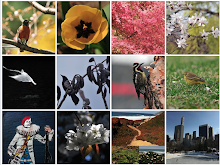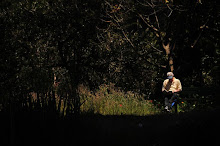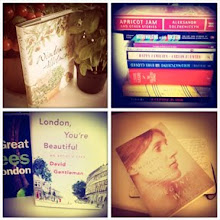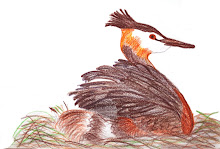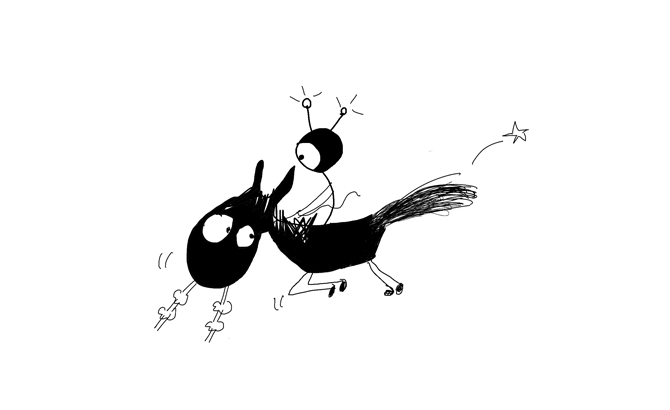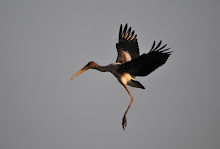(Earlier
rounds here.)
Is
reading a book (by which I mean literary fiction) mandatory for leading a wise
life?
Last year
in a
post on the Facebook page, I mentioned how there has never been a better
time for books and people who like to read than the present time. Yet people
keep complaining that nobody reads. Even though the evidence points to the
contrary. A recent survey showed that millennials
are out reading older Americans, and are buying more books rather than
borrowing them. (Much to the publishers delight, you’d suppose.) Of course, if
you walked around with your eyes open you'd not need a survey to see that.
Fact is that
since reading became something that humans do, there have always been some
people who “liked to read a lot” and many who didn’t. But is reading books
necessary to lead a purposeful life? In my life I have come across many people
who don’t read books (some don’t know how to read) and yet are living
meaningful lives, even happy lives if that is what you prefer. After all,
reading– especially reading for pleasure– is a privilege. (And obviously
related to social class, but that is better left for some other forum.)
I am
happy to note that Tim Parks recently shared similar sentiments in ‘Reading
Upwards’.
He also
makes another point that I have made many times before that people who enjoy
reading Chetan Bhagat/ Dan Brown aren’t going to move onto Manto/Shakespeare.
That is a ruse of publishers who only seek a growing bottom line, yet control
what people get to read.
That
brings me to the second point: Now that the traditional publishing industry is,
shall we still whisper it, moving towards an (inevitable?) end, what does it
mean for the “world of books”?
I know
people who bemoan the end of books as they know it, mostly those who claim to “read
a lot”– those who have books lying around on the floor everywhere and so on.
Some get to write about it– mostly white people, especially white men of a
certain age who have benefited (not just monetarily) the most from the existing
structure of the publishing industry. (I don't need to post hyperlinks to prove
how whitest white and male dominated the world of publishing and published
books really is, do I?). And then I see that people I know are in the process
of writing or have written books– especially women of color– many, even a few
years back, would have deemed the idea of getting published impossible. In part
this is due to the rise of self-publishing and online literary magazines. (In
traditional publishing/media the bias is still towards stories told from the
point of view of a white person/or what they’d want to read.) Never in the
history of human society have so many people written or are in the process of
writing books. They may not be writing War
and Peace but that may be simply because that’s not what they want to write–
at least not in that form.
Which
brings me to the most perplexing issue: what exactly is a book? Is it a place
where stories live? Growing up in India, I learnt fairly early in life that
stories weren’t imprisoned in books– they were free flowing long rhymes, and
layered episodes which a person could narrate from memory for days, without a
single piece of inked paper in sight. After all, stories have existed since
before the invention of paper and the advent of the printing press. And these
were truly democratic stories; every narrator would freely add to the existing
framework and create something new, while staying close to the original text
and its other versions. Consider the epic
Ramayana and its several versions: each narrator would borrow from,
critique, build on earlier versions and thus carry forward the story. A reason
why the story has stayed alive for so long– a version exists to appeal to the
sensibilities of every listener down the years.
As A.K.
Ramanujan pointed out sometimes the real value of the story lies not in the
fact that it resides in a book, but that someone is “really listening to the
story” (see
page 15 of his essay "Three Hundred Ramayanas").
And let’s
not even get started on the gibberish regarding e-readers. All opposition
simply confusing the medium for the message: books and e-readers are the
medium, not the message. I am fortunate to have some members in my family who
have never known a world without the internet. It helps keep my arrogance in
check (“things as they were in my time are the way things should always be”
that sort of things). For everyone else, here are some of the sanest words ever
written on how we perceive any new technology:
“I suppose earlier generations had to sit
through all this huffing and puffing with the invention of television, the
phone, cinema, radio, the car, the bicycle, printing, the wheel and so on, but
you would think we would learn the way these things work, which is this:
1) everything that’s already in the world
when you’re born is just normal;
2)
anything that gets invented between then and before you turn thirty is
incredibly exciting and creative and with any luck you can make a career out of
it;
3)
anything that gets invented after you’re thirty is against the natural order of
things and the beginning of the end of civilisation as we know it until it’s
been around for about ten years when it gradually turns out to be alright
really.
Apply
this list to movies, rock music, word processors and mobile phones to work out
how old you are.”














